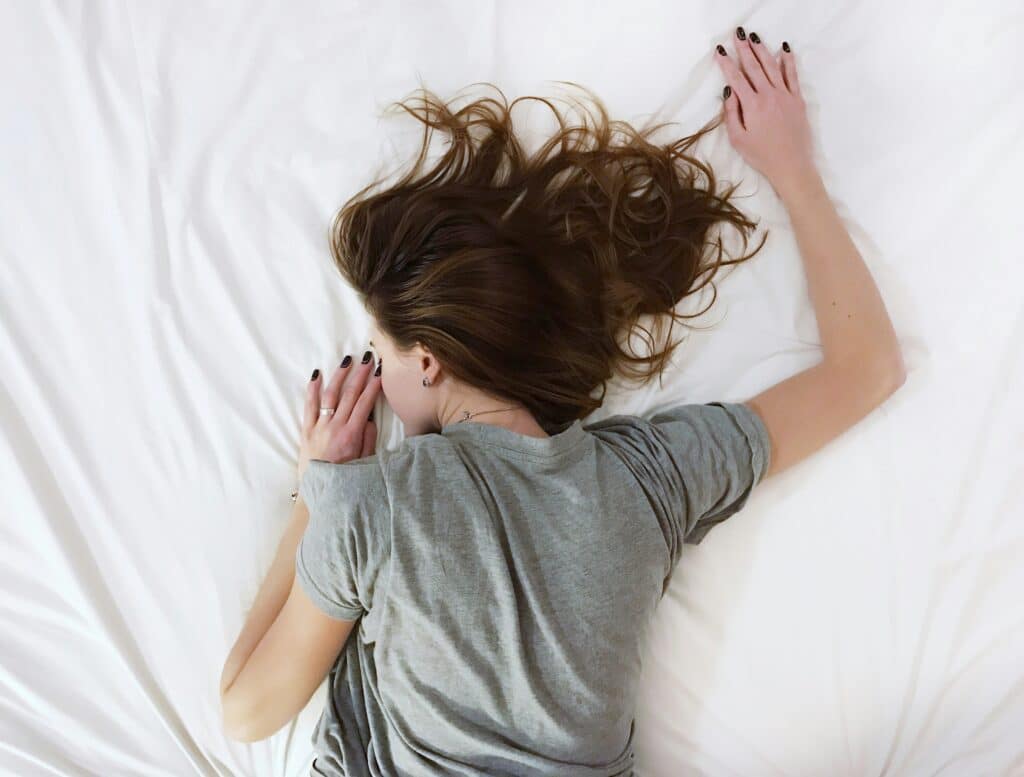Sleep can be a huge challenge for those of us with ADHD – and not for the reasons people often assume.
If you struggle to fall asleep, stay asleep, or wake up feeling like you haven’t slept at all, you’re not alone. In fact, research shows that up to 75% of adults with ADHD experience ongoing sleep issues, and it’s not about willpower, laziness, or screen time.
Your Brain Isn’t Broken, it’s Just Wired Differently
ADHD brains are biologically different – and one key difference is a delayed internal clock (often called the “body clock”).
Every cell in the body has its own body clock, all regulated by one central “master clock” in the brain, known as the suprachiasmatic nucleus.
In people with ADHD, the release of melatonin (the hormone that helps you sleep) tends to happen 1–2 hours later than in neurotypical individuals.
This delay means winding down at 10 PM can feel nearly impossible – even when you’re completely exhausted.
And it doesn’t stop there. People with ADHD often experience:
- Sleep inertia (that heavy, groggy feeling in the morning that can last for hours)
- Restless legs or night – time fidgeting
- Hyperarousal – racing thoughts, sensory sensitivity, and overthinking at bedtime
- Sleep disorders like Delayed Sleep Phase Syndrome and sleep apnoea
This means our sleep isn’t just delayed, it’s often fragmented, shallow, or unrefreshing. And when you add that to the emotional overwhelm, shame, or pressure to “just get to bed earlier,” it’s no wonder we end up exhausted.
If you also happen to be going through menopause, sleep can become even more disrupted. Hormonal fluctuations – particularly the drop in oestrogen and progesterone – can interfere with melatonin production, increase night-time anxiety, and trigger hot flushes and night sweats. Combined with ADHD’s already delayed sleep-wake rhythm, this can create a perfect storm for restless nights and next-day fatigue which can in turn lead to hunger, food cravings and overeating. Understanding this double impact can help you approach sleep challenges and their knock-on effects with more compassion – and the right support.
So What Can Help?
It’s not about strict rules or perfect routines. The ADHD brain needs structure with flexibility, and most of all, compassion.
Try these starting points:
- Wake up at the same time every day (even if bedtime varies)
- Get light exposure in the morning to shift your body clock earlier
- Choose a wind-down routine you actually enjoy — audiobooks, colouring, gentle yoga, or music
- Use weighted blankets or white noise if sensory overwhelm is part of your struggle
- Eat a protein-based breakfast to support dopamine levels and start your day with clarity
- Speak to your GP if you suspect a sleep disorder such as sleep apnoea.
Above all, know this: your sleep struggle isn’t a personal failure. It’s part of a neurobiological picture that deserves understanding – not shame.
Sources & Further Reading
If you’d like support unpicking your own sleep challenges or learning strategies that work for your neurodivergent brain, I’d love to help. Whether you’re midlife, menopausal, or just exhausted from trying to fit a “normal” mould, you deserve rest and tools that honour how you’re wired.
1. Kooij, J. J. S., et al. (2010). ‘European consensus statement on diagnosis and treatment of adult ADHD: The European Network Adult ADHD.’ BMC Psychiatry, 10(1), 67.
→ Notes that up to 75% of adults with ADHD experience sleep disturbances.
2. Cortese, S., et al. (2009). ‘Sleep in children with attention-deficit/hyperactivity disorder: Meta-analysis of subjective and objective studies.’ Journal of the American Academy of Child & Adolescent Psychiatry, 48(9), 894–908.
→ Shows high prevalence of delayed sleep phase in ADHD.
3. Van Veen, M. M., et al. (2010). ‘Melatonin intervention in ADHD and chronic sleep-onset insomnia.’ Sleep, 33(10), 1407–1414.
→ Found that melatonin onset is delayed by 1.5–2 hours in individuals with ADHD.
4. Weiss, M. D., et al. (2006). ‘Sleep and eveningness chronotype in ADHD: Implications for functioning and quality of life.’ Sleep Medicine, 7(5), 349–358.
→ Discusses circadian rhythm disruptions and impact on daytime functioning in ADHD.
5. Yoon, S. Y. R., Jain, U., & Shapiro, C. (2012). ‘Sleep in attention-deficit/hyperactivity disorder in children and adults: Past, present, and future.’ Sleep Medicine Reviews, 16(4), 371–388.
→ Provides comprehensive review of ADHD-related sleep disorders (e.g., RLS, insomnia, DSPD).
6. Becker, S. P., et al. (2018). ‘Predicting academic achievement and grade retention with attention-deficit hyperactivity disorder symptom dimensions.’ Journal of Clinical Child & Adolescent Psychology, 47(3), 326–339.
→ Highlights the compounding effects of sleep deprivation on ADHD symptoms.

